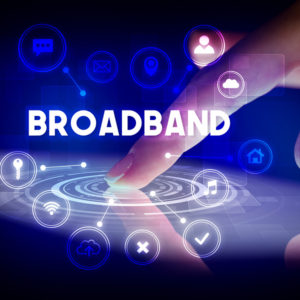The COVID-19 pandemic has shone much needed light on the importance of internet access, and the infrastructure that makes it possible.
Following the release of House Democrats’ infrastructure spending bonanza package, Senate Republicans on the Energy and Commerce Committee have unveiled 26 bills to streamline broadband deployment.
With provisions that focus on transparency and empowering local communities, the Senate package marks a strong opening bid for the tricky ensuing negotiations.
With more Americans shopping, working and receiving medical advice online than ever before, affordable and reliable internet has never been so important. According to recent research by Pew, 87 percent of surveyed American adults say that the internet has been important or essential for them during the coronavirus pandemic.
However, access to broadband internet remains incomplete across the country.
A recent report by the non-profit organization Common Sense and the Boston Consulting Group estimates that 50 million public school K-12 students are forced to rely on distance learning due to COVID-19, but approximately 30 percent of those students lack adequate internet or devices to make distance learning effective.
The absence of sufficient broadband infrastructure exacerbates this inequality.
Without a wealth of hardware like cables or wireless transmission towers, there is little intramodal competition among broadband providers. And without price competition, there is no incentive for providers to lower their costs.
To rectify the dearth of broadband internet in certain areas, lawmakers in both the House and Senate have unveiled ambitious plans to facilitate infrastructural expansion.
Among its many provisions, the expansive Senate package introduces approval-or-denial deadlines for various forms of telecommunications buildout.
The WIRELESS Leadership Act, for example, establishes deadlines ranging from 60 to 150 days for requests to install small or macro wireless cells. Similarly, the BROADBAND Leadership Act would more broadly require state and local governments to approve or deny service providers’ applications to collocate or deploy facilities within 90 or 150 days, respectively.
The creation of these deadlines increases the level of transparency and accountability for businesses and consumers. Not all plans for expanding broadband infrastructure are feasible, but businesses should not be forced to wait in opaque limbo to receive that determination.
Establishing deadlines also allows consumers to hold their elected state and local officials to account. Fixed deadlines eliminate the excuse of blaming a sluggish technical permitting process for why affordable broadband is not available.
The Senate initiative also includes provisions that would bring the environmental permitting process one step closer to consumers. The package includes the Rural Broadband Permitting Efficiency Act of 2019, which enables federal agencies to delegate environmental review compliance for broadband projects to states and Native American tribes.
The move would allow consumers, who are directly affected by these decisions, to exert more focused pressure on their political representatives when their expectations concerning regulatory diligence and efficiency are not met.
Access to a reliable internet connection has become a basic necessity for the majority of American consumers, and the time for dithering on broadband expansion has passed.
To facilitate the rollout of telecommunications infrastructure, the Senate broadband package includes simple procedural changes that add transparency and accountability.
As lawmakers on both sides of the aisle work to refine their infrastructure legislation, they should bear in mind the importance of these principles for consumers.

